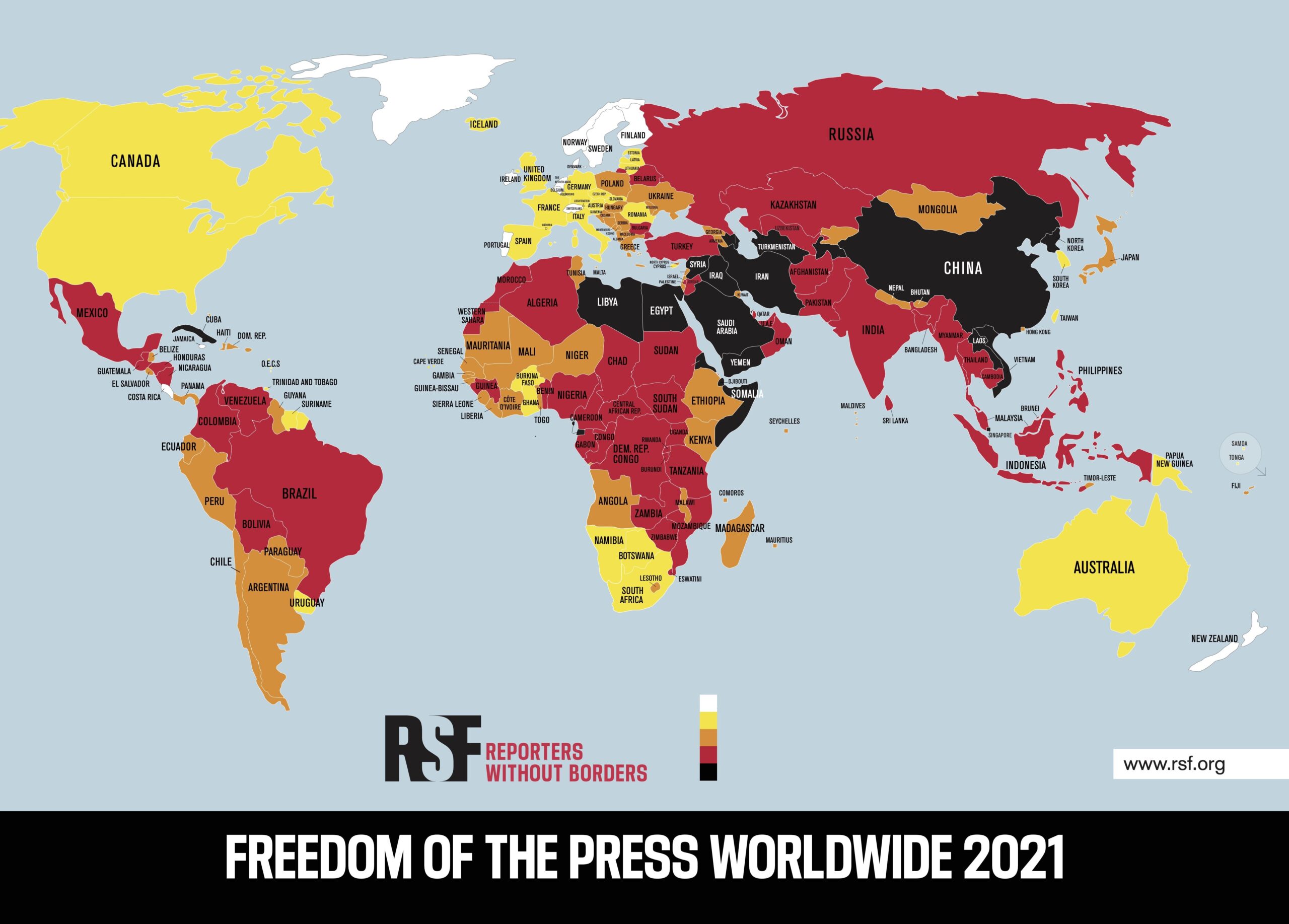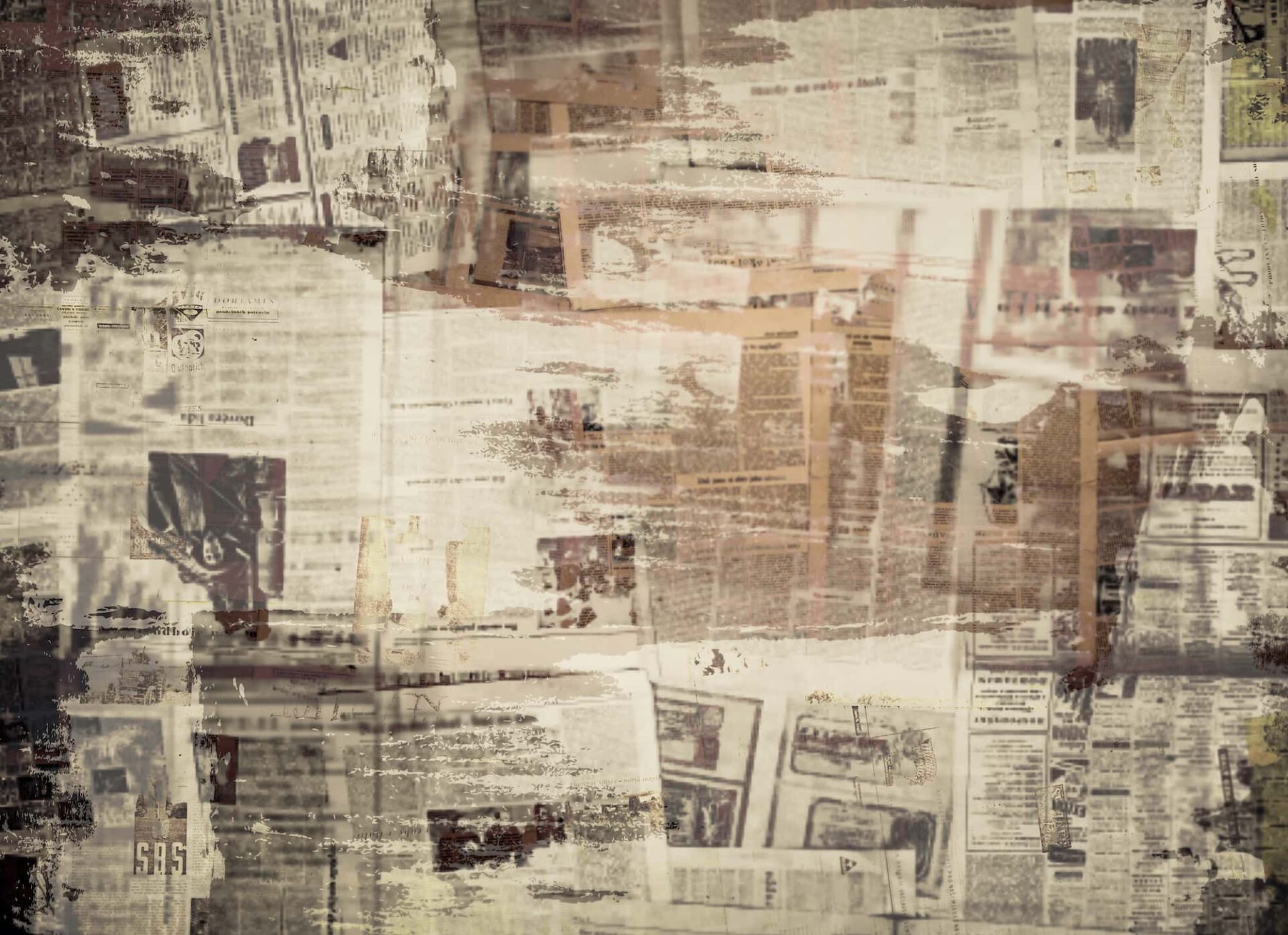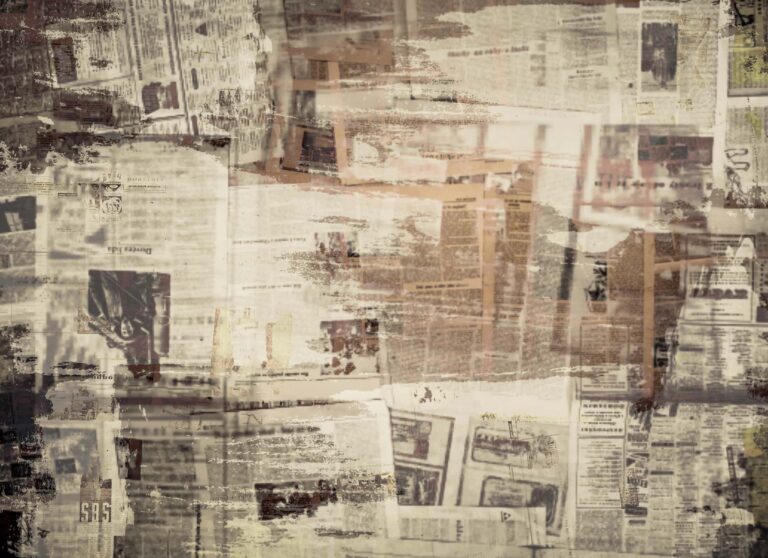In three of the Visegrad Four countries – Hungary, Poland, and Slovakia – press freedom is in decline, according to the World Press Freedom Index 2021 published by Reporters Without Borders (RSF).
In a press release announcing the publication of this year’s World Press Freedom Index, RSF hailed journalism as “the vaccine against disinformation”. It seems that, as with COVID-19, the countries of Central Europe are not well prepared to fight this fundamental threat to democracy. The situation is the worst in Hungary, which ranked 92 (dropping three places from 89 in 2020). Blocking access to information about the pandemic, running intimidation campaigns against domestic and foreign journalists, censoring independent media outlets (such as Index.hu and Klubrádio) – Viktor Orban’s government has a long list of sins. What’s worse, it appears that this Hungarian strategy “is a source of inspiration to certain other EU members”.
This is certainly true of Poland (ranked 64, down from 62 in 2020), where the government openly admits its admiration for Orban. RSF cites the transformation of the state-owned television network (TVP) into a government propaganda outlet, police violence against journalists, and increased pressure on private-owned media, including a proposed tax on advertising income. This pressure is marked by nationalism and efforts to “repolonise” the media landscape, with frequent mentions of “German media” and “Polish-language media”.
Increased media concentration is listed as a main concern in the Czech Republic, which nonetheless managed to retain its ranking (40). Other problems include threats to public broadcasting from government-controlled supervisory bodies, online smear campaigns, and the proliferation of “alternative” media that promotes pro-Russian narratives and conspiracy theories.
The situation in Slovakia (ranked 35, but down from 33) looks somewhat brighter. The main problem here, however, is a grave one: “flagrant impunity” for violent crimes committed against journalists, of which Jan Kuciak’s murder is the most well known and chilling example. RSF also mentions postponing plans for introducing legislation meant to protect journalists and their sources and for improving the editorial and financial independence of RTVS, the public radio and television broadcaster. Meanwhile, the independence of privately owned media outlets is threatened by the influence of the oligarchs who own them.

Source: Reporters Without Borders, https://rsf.org/
The World Press Freedom Index is an annual publication assessing press freedom in 180 countries and territories. It is compiled by pooling the responses of experts to a questionnaire devised by RSF. This qualitative analysis is combined with quantitative data on abuses and acts of violence against journalists during the period evaluated. The questionnaire addresses pluralism, media independence, the media environment and self-censorship, the legislative framework, transparency, and the quality of the infrastructure that supports the production of news and information in each country.
Read the whole ranking on https://rsf.org.







